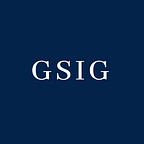While numbers vary from journal to journal, Dr. Dimitrova, JMCQ Editor-in-Chief, estimates that about 1 out of 5 submissions are desk rejects. This may be lower than other journals in our field because of the broad scope of JMCQ. For instance, as an association journal, they welcome theories, topics, and methodologies from all corners of AEJMC’s divisions and interest groups. So, the issue is not typically the topic, but rather one of three things: A methodological flaw, the limited contribution of the research, or a concern regarding research integrity.
- Desk rejects happen most often because of some fatal flaw in the methodology. When we receive a submission, I focus on the method and the decisions behind the design of the study. For instance, if it is a content analysis that was designed without real structure or there was no inter-coder reliability check, this becomes an issue that is not fixable at this point.
- The desk reject may also be based on the manuscript’s limited contribution to the field. If the findings provide a very narrow slice of a meaningful contribution, the manuscript may be desk rejected and the authors may be advised to consider a more specialized journal. To learn more about how to describe the contribution of your study, check out the full interview with Dr. Dimitrova in GSIG’s Spring 2021 newsletter.
- Research integrity. When referencing an idea from another scholar, make sure you are adequately citing their scholars. Manuscripts submitted to JMCQ undergo a pre-screening process to check for plagiarism. Their system will identify areas of concern and raise a flag to the Editor. Also, ensure that the manuscript is not under review or published elsewhere and state in the cover letter if the data has previously been used.
Be sure to also check out Dr. Dimitrova’s interview with our GSIG Research Chair Erika Schneider about the peer review process.
